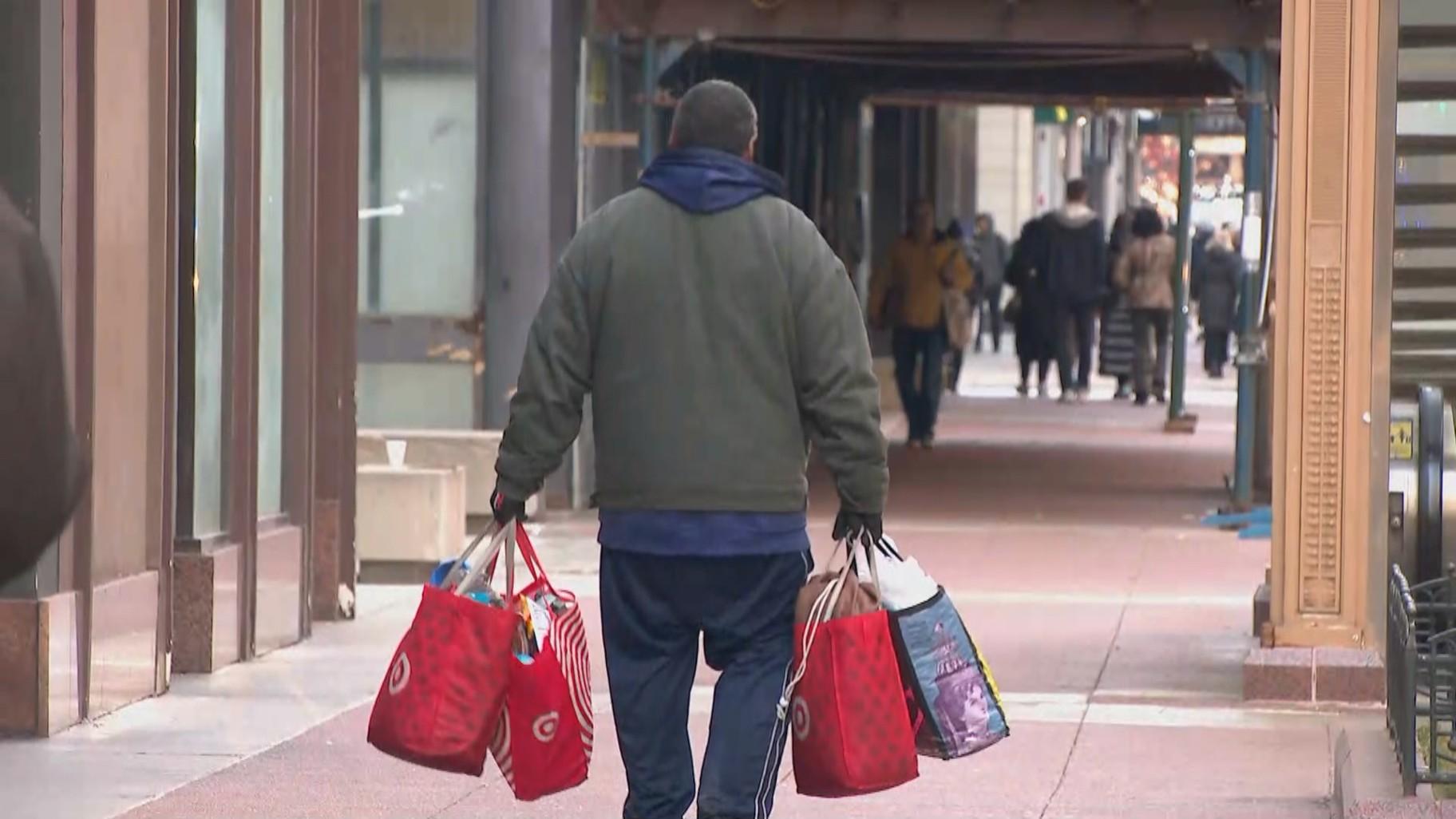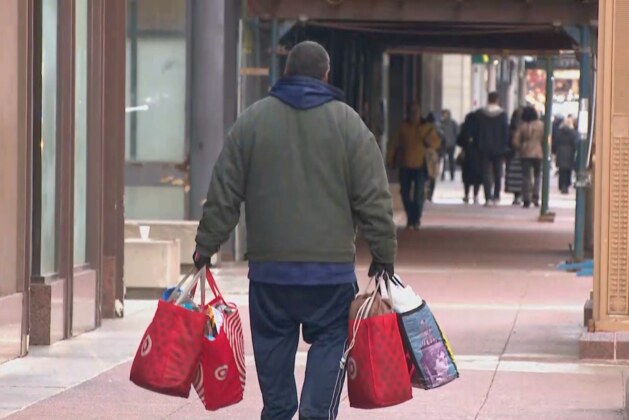 (WTTW News)
(WTTW News)
As iconic holiday favorites like Christkindlmarket and the ice-skating rink at Millennium Park draw visitors to downtown Chicago, the area is also a destination with a plethora of shopping centers, major retailers and local boutiques for many to get their holiday shopping done.
This holiday season, some downtown businesses are reporting traffic and sales being mostly on par with last year, according to Kiana DiStasi, chief marketing and communications officer for the business organization Chicago Loop Alliance.
But businesses are seeing a slight dip in the average amount spent per transaction this season.
“They’re suggesting that this indicates consumers are more sensitive to prices and likely due to other measures within the current consumer spending environment, like record high credit card debt, high interest rates,” DiStasi said.
One major retailer the organization spoke with also reported Christmas-specific gift items like toys were selling slower than previous years while sales for basic household merchandise and personal items were up, indicating a possible change in people’s shopping habits.
Other factors like weather can also impact how many people come out to shop, DiStasi said, pointing to how the cold and rainy conditions last Saturday might have prevented more people from coming downtown.
This month, Chicago Loop Alliance unveiled a five-year strategic plan in an effort to attract more people to downtown and boost economic recovery since the COVID-19 pandemic. The plan consists of a list of priority areas that include building confidence in the Loop by improving public safety and making the Loop like a neighborhood where people live and visit versus just shop.
Even with about half of Americans opting to do most of their holiday shopping online, brick-and-mortar big-box stores and locally owned stores are next on the list as the most popular destinations for holiday shopping, according to a recent CNBC economic survey.
Small Business Perspective: Atlas Stationers
The stationery store Atlas Stationers, located at 227 W. Lake St., is a family-run business with a brick-and-mortar presence in downtown for nearly 85 years.
The store originally sold office supplies and would make deliveries to businesses downtown before the COVID-19 pandemic forced the store to pivot its business model and focus on selling exclusively fountain pens, planners and other stationery items.
Brian Schmidt, vice president of Atlas Stationers, whose great-grandfather first started the business, said that if the store didn’t make that change, the business might still be struggling today like some other downtown businesses since the pandemic.
“Before the pandemic, most of our business was lunch rush, somebody coming in to get a last-minute office supply or a last-minute greeting card,” Schmidt said. “It has turned into people spending hours in our store, not just people that walk by on the street, but people that are making trips to see us.”
With the store offering nearly 1,000 pen options to choose from, ranging from a few dollars up to $10,000, it was important to also offer testing tables for people to try out products, Schmidt said.
The business has seen its revenue increase every year since the pandemic both in its retail store and e-commerce, according to Schmidt. He said e-commerce accounts for about 75% of business.
This year, Atlas Stationers hosted holiday expos where it invited several different vendors into the store, which Schmidt said drew crowds and helped jumpstart sales for the holiday season. Sales during the holiday season can increase up to four times compared to a normal month, he said.
Another factor to the business’ success is its social media presence on TikTok and Instagram, which helps drive e-commerce and helps get the store’s name out. Atlas Stationers has more than 18,000 followers on Instagram and more than 230,000 followers on TikTok, amassing 6.2 million likes on its videos.
But all in all, Schmidt said the most success Atlas Stationers has as a business is when it’s able to share the family backstory with people while also allowing them to create their own experience in the store.
“The way that we view retail is getting more specialized these days,” Schmidt said. “You see big-box businesses going under, people are buying more online. Having ways to connect and bring people together, trying to create a community can go a long way to make people want to shop with you.”
Contact Eunice Alpasan: @eunicealpasan | 773-509-5362 | [email protected]




Leave a comment